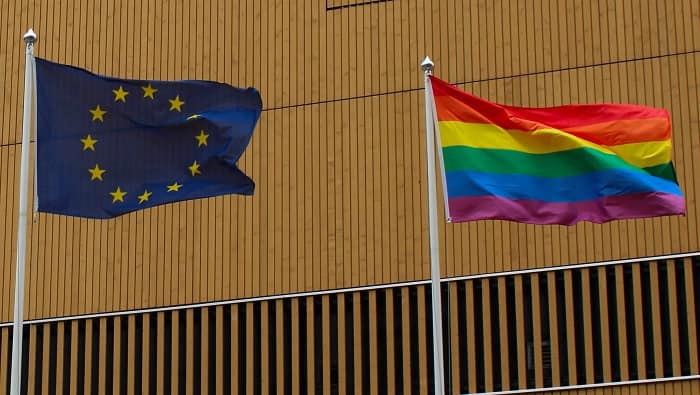EU Commission Proposals on Equality Fails Trans People

On the release of two European Commission proposals to strengthen equality bodies and on mutual recognition of parenthood across EU Member States, TGEU regrets that in their current form they will not advance protection for trans people.
In general, the goal of ensuring minimum standards for equality bodies is highly valuable but the absence of reference to gender identity and gender expression as grounds for discrimination means uncertainty around protection for trans people.
“Trans people need explicit protections in employment, access to goods and services, or when travelling as a parent. We are disappointed by this lost opportunity to improve trans people’s lives and deliver on the EU LGBTIQ Strategy.” comments TGEU acting co-director Anwar Ouguerram.
Why strengthening equality bodies is important
There is a significant need for protection against discrimination for trans people that strong equality bodies can help with. TGEU’s 2021 Trans Rights Map shows that only 20 EU Member States have equality bodies that are explicitly mandated to work on gender identity or are systematically working on issues covering gender identity.
At the same time, there is a significantly high prevalence of and therefore need for protection against discrimination against trans people in the EU. 60% of trans respondents to the FRA 2019 LGBTI Survey indicated they had experienced discrimination in at least one area of life in the previous 12 months. 40% of trans people experienced discrimination when at work or looking for work, one-third by healthcare or social services personnel. Trans people who experience intersectional discrimination fair even worse. For example, 53% of trans people with a disability who are “of an ethnic minority (including of migrant background” experienced discrimination at work, and 66% by healthcare of social services personnel.
Why the parenthood proposal is important
Currently, the lack of mutual partnership and parenthood recognition between EU Member States leads to discrimination in exercising free and safe movement for many families. TGEU’s Stuck on the Swing report documents the stigma, prejudice, and discrimination faced by trans parents and their children in their movements across borders.
The ‘European Certificate of Parenthood’ proposed in this regulation has the potential to ensure that trans parents who have their gender identity recognised on their children’s document issued in one Member State are also recognised in another Member State. However for many trans parents and their children, when legal gender recognition does not extend to kinship documents this can lead to discrimination when exercising free and safe movement. This issue is not addressed by this regulation.
Every fifth trans person in the EU is a parent, but only four EU member States currently recognise trans parents on their kids’ documents, according to TGEU’s Trans Rights Map.
Key points from the proposals
On 7 December 2022, the European Commission published two proposals for directives on standards for equality bodies with the goal that equality bodies can support enforcement of the existing Equality Directives, help victims of discrimination access justice, promote equality, and prevent discrimination. They include provisions on independence, resources, and the activities equality bodies should undertake, including around awareness raising, support for victims, and the right to act in court. The directives also include an obligation to collect disaggregated data.
While all these points are important and welcome, the limited focus on discrimination based on the ground of sex, with no reference to gender identity and gender expression, means that trans people are not explicitly protected and instead rely on individual Member States and their equality bodies’ interpretation of sex.
Also on 7 December 2022, the European Commission published its proposal for a regulation on “jurisdiction, applicable law, recognition of decisions and acceptance of authentic instruments in matters of parenthood and on the creation of a European Certificate of Parenthood”. The goal of the regulation is to protect the rights of children in cross-border situations and ensure that “if you are a parent in one country, you are a parent in every country”. The focus is largely on ensuring same-gender parents of a child or parents of adopted children, regardless of nationality, are recognised as such across Member States. It does not address the issue of trans parents having their legal genders recognised on kinship documents to enable easy travel across borders.
TGEU will continue to work with other LGBTI networks, Equinet, and EU policymakers to ensure that the maximum protection for trans people can be achieved with these proposals.